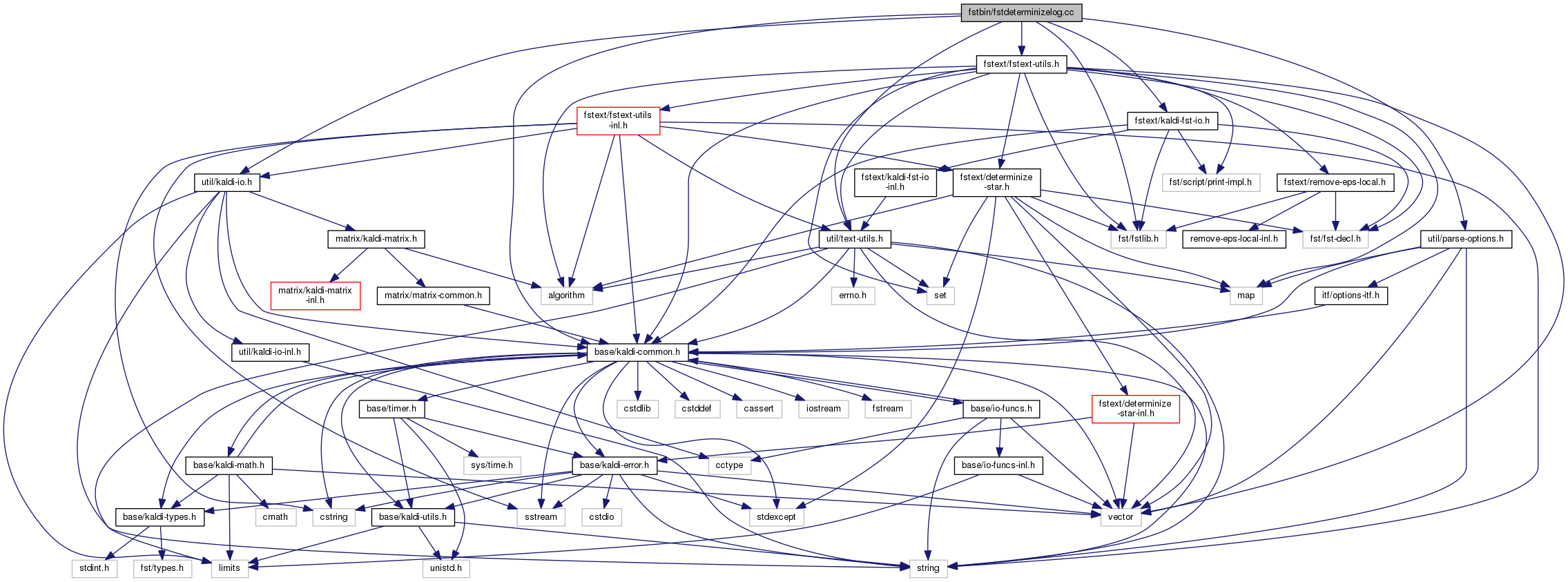Go to the source code of this file.
|
| int | main (int argc, char *argv[]) |
| |
◆ main()
| int main |
( |
int |
argc, |
|
|
char * |
argv[] |
|
) |
| |
Definition at line 29 of file fstdeterminizelog.cc.
References fst::DeterminizeInLog(), ParseOptions::GetOptArg(), ParseOptions::NumArgs(), ParseOptions::PrintUsage(), ParseOptions::Read(), fst::ReadFstKaldi(), and fst::WriteFstKaldi().
31 using namespace kaldi;
36 "Determinizes in the log semiring\n" 38 "Usage: fstdeterminizelog [in.fst [out.fst] ]\n" 40 "See also fstdeterminizestar\n";
45 if (po.NumArgs() > 2) {
50 std::string fst_in_filename = po.GetOptArg(1),
51 fst_out_filename = po.GetOptArg(2);
60 }
catch(
const std::exception &e) {
61 std::cerr << e.what();
This code computes Goodness of Pronunciation (GOP) and extracts phone-level pronunciation feature for...
For an extended explanation of the framework of which grammar-fsts are a part, please see Support for...
void DeterminizeInLog(VectorFst< StdArc > *fst)
The class ParseOptions is for parsing command-line options; see Parsing command-line options for more...
void WriteFstKaldi(std::ostream &os, bool binary, const VectorFst< Arc > &t)
void ReadFstKaldi(std::istream &is, bool binary, VectorFst< Arc > *fst)
